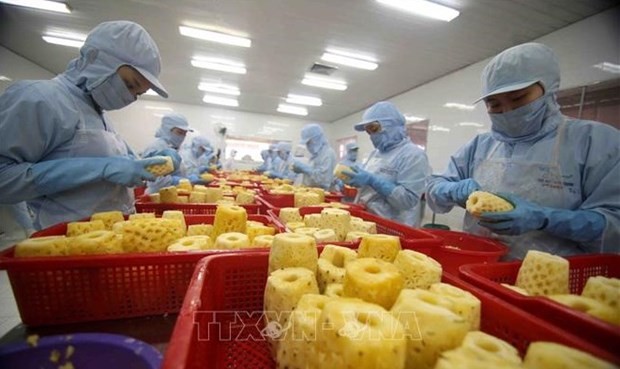
Vietnamese export, import affected by Russia-Ukraine conflict: experts
Latest
 |
| Russia’s demand for farm products will increase in the time ahead as the Russia-Ukraine war has led to a supply crunch. (Photo: VNA) |
Nguyen Do Anh Tuan, head of the Department of International Cooperation under the Ministry of Agriculture and Rural Development, said Russia is a promising market for Vietnamese agricultural products in terms of both export and import.
The armed conflict will significantly affect Viet Nam’s export of farm products to Russia as well as its import from the country in the short run, he stressed.
In addition, the US, the European Commission, the UK, Canada, France, Germany and Italy have announced the removal of a number of Russian banks from the SWIFT messaging system, which would hinder transactions in the time ahead, according to the official.
He, therefore, suggested domestic exporters and importers closely follow new regulations and information released by Russian banks, to at least secure payments in trading.
Economist Nguyen Minh Phong also pointed out difficulties in payment as a result of the conflict.
However, Russia’s demand for farm products would increase in the time ahead as the Russia-Ukraine war has led to a supply crunch, which is a good opportunity for Viet Nam, he said.
Viet Nam may export agricultural products to Russia at high prices if the Southeast Asian nation changes the payment methods flexibly, the economist suggested.
Phong also thought that Vietnamese agricultural products could still access the Russian market, and Vietnamese firms could even open production establishments in the country, which has a high demand for farm produce, especially in the winter.
Some domestic exporters said they are also affected by the suspension of flights to Russia.
According to the General Department of Vietnam Customs, Viet Nam imported 322,731 tonnes of fertilizers, including 53,773 tonnes valued at nearly 29.6 million USD from Russia.
Last year, Viet Nam spent 143.5 million USD on buying 386,193 tonnes of Russian fertilizer.
The prices of imported fertilizers have increased from 80-130 percent since the beginning of 2022 as compared with the same period last year, which has impacted local agricultural production.
Given this, the Plant Protection Department has asked domestic producers to step up the implementation of Directive No. 653/CT-BNN-BVTV issued by the Ministry of Agriculture and Rural Development, on the effective and economical use of fertilizers.

























